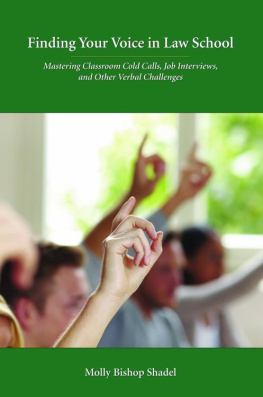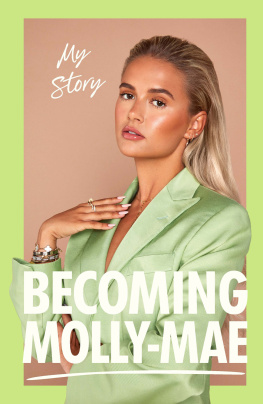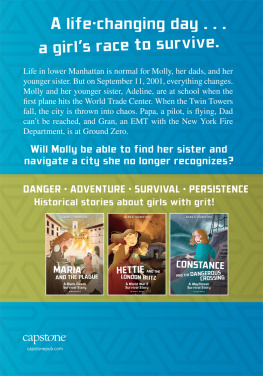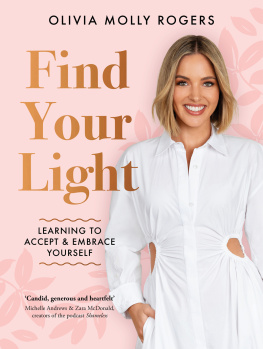Finding Your Voice in Law School
Finding Your Voice in Law School
Mastering Classroom Cold Calls, Job Interviews,
and Other Verbal Challenges
Molly Bishop Shadel
CAROLINA ACADEMIC PRESS
Durham, North Carolina
Copyright 2013
Molly Bishop Shadel
All Rights Reserved
Library of Congress Cataloging-in-Publication Data
eISBN 978-1-61163-428-0
Shadel, Molly Bishop, 1969
Finding your voice in law school : mastering classroom cold calls, job interviews, and other verbal challenges / Molly Bishop Shadel.
pages. cm
Includes bibliographical references and index.
ISBN 978-1-61163-073-2
1. Law students--United States--Handbooks, manuals, etc. 2. Law--Study and teaching--United States. 3. Law--Vocational guidance--United States. I. Title.
KF283.S583 2012
340.071173--dc23
2012037605
CAROLINA ACADEMIC PRESS
700 Kent Street
Durham, NC 27701
Telephone (919) 489-7486
Fax (919) 493-5668
www.cap-press.com
Printed in the United States of America
Contents
Acknowledgments
I am very grateful to the students (some of whom were also my research assistants), faculty, and members of the legal profession who graciously shared their thoughts with me in preparation for this book. They are: Kerry Abrams, Karin Agness, Charles Barzun, Natalie Brown, Tomiko Brown-Nagin, Jon Cannon, C. Benjamin Cooper, Alexander Creticos, Katherine Mims Crocker, Tore deBella, Virginia Davis, David Demirbilek, Holly Duke, Lydie Essama, Kim Forde-Mazrui, Joe Fore, Jenna Gallagher, Rebecca Gantt, Brandon Garrett, George Geis, Jeree Harris, Toby Heytens, Demetria Johnson, Nate Kenser, David Leahy, Ben Martin, Timothy McKernan, Brian Mink, Daniel Nicolich, Andrew Peach, Kent Piacenti, Caitlin McLaughlin Poe, Gage Raley, George Rutherglen, Bob Sayler, Kristen Shepherd, Henry Sire, Chris Sprigman, Cory Stott, Steven Sun, Holly Vrandenburgh, Daniel Watkins, and Ann Woolhandler. I owe a special debt of thanks to Mary Wood, whose editing skills are superb, and to Troy Dunaway and the University of Virginia School of Law, for setting up the research and editing support that I needed. Finally, thanks to my family for making work-life balance possible.
Prologue
On my first day of law school, I was terrified. I had the sense that my classmates had always known that they wanted to be lawyers, and probably had majored in some sort of pre-law subject in college. They already knew a lot about the legal system, I imagined, from some college class they had taken (and I had missed). They probably spent their summers working at law firms, read all the newspapers and books that lawyers read, and mastered the basics that I should have already acquired somewhere along the way, but hadnt. When I started law school, I felt like some weird interloper in a world that wasnt mine.
To prepare for my first class, I completed the assigned reading and I also watched The Paper Chase. Doing the reading was a good idea. Watching the movie wasnt. The Paper Chase is a fictionalized account about how humiliating law school can seem, and I became petrified about The Socratic Method. As the movie portrayed the method, a professor calls on a student in front of a huge classroom full of people and asks questions that no one could possibly answer. It seemed to me that the whole point of the Socratic Method was to showcase the students ignorance, not so anyone would learn from it, but so people would laugh.
My most terrifying nightmare came true the next day. I walked into my first class Legal Methods sat down, and opened my book. The professor looked up and said, Ms. Bishop? And so it began.
I have no idea what question I was asked or what I said because the whole experience seemed so traumatic. But I can remember my next cold call, because it happened during the first meeting of my next class. The scene: Contracts. The first student called on? Me. And then again in Civil Procedure (where I was called on every week for the rest of the semester). The professor quizzed me in my first Copyright Law class as well, and also in Corporations, where, as in Civ Pro, I was one of the stable of students called on again and again and again.
I am now a law school professor, and I have a theory about why I so often was called on first. It wasnt because anyone was out to get me it was because my last name (Bishop) was near the beginning of the alphabet and was easy to pronounce. I think professors continued to call on me because I hadnt mastered legal jargon, so when I answered their questions, I used words that everyone in the room could understand. Also, I didnt break down under questioning (much as I might have wanted to). Most importantly, I quickly developed strategies to make it through class without making a fool of myself. I was not very good at the Socratic Method when I started law school, but by the time I graduated, I was an expert.
Performing well in class didnt always guarantee me a good grade. I was surprised to discover that the same professor who called on me week after week had no qualms about giving me an unspectacular grade, because for many classes only the final exam counts. But even if it didnt always help my transcript, I now think that the verbal education I received in law school was more important than any grade. Being able to articulate an idea aloud, to think under pressure, to keep your cool in a stressful situation these are the skills that can make you stand out a job interview. Once you have the job, your skills of verbal persuasion can help you succeed in it. I found that when I joined a law firm, I could snag more interesting assignments simply because I was willing to speak up at team meetings and could articulate my ideas effectively. I served my clients better because I could communicate effectively with and for them. Now that Im a law school professor, I draw on my rhetorical education every day to teach classes and make presentations. It is worth the time to learn how to speak effectively, because its a skill you will use for the rest of your life.
The good news is that anyone can learn to speak well. Anyone. As a professor who teaches oral advocacy and rhetoric, I have seen student after student face the challenge of public speaking. Ive seen them overcome their fears, stumble, get back up again, practice, and improve. Yes, there are some people who are naturals at this. But anyone can become competent, even brilliant, at verbal persuasion. The purpose of this book is to help you figure out how.
Finding Your Voice
in Law School
Chapter One
The Socratic Method: Learning to Think Like a Lawyer
One of the more memorable rites of passage for many aspiring lawyers is learning to cope with the Socratic Method in law school.
The Socratic Method is a particular way of teaching that you may not have encountered in high school or college. It usually looks something like this. You and approximately 80 of your classmates are seated in a large classroom. The professor stands at the lectern at the front of the room. To prepare for class, you have read several cases (judicial opinions). Perhaps you have also read a statute or regulation, or a contract.
The professor selects a student (often at random) and begins to quiz him or her about one of the cases. The questions are rarely limited to requiring the student to recite the facts of the case. Instead, the student might be asked to explain why the case was decided in the way it was, what the ramifications of the case are, what might happen if some fact of the case were changed, how the logic of the judges decision worked, how the case is similar to or different from other cases that the class is studying, and so forth. Here is what a (fictional) contracts class using the Socratic Method might sound like:











